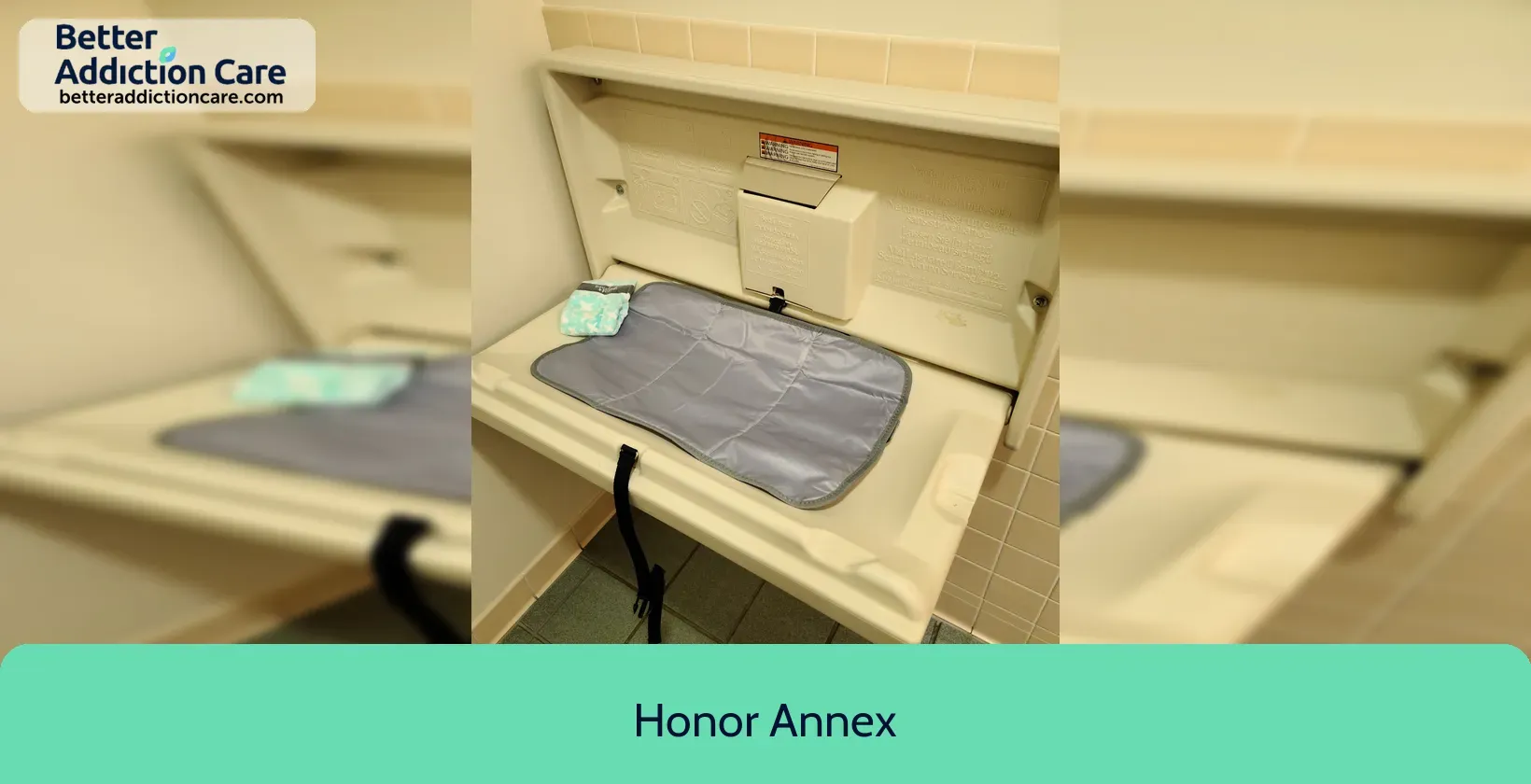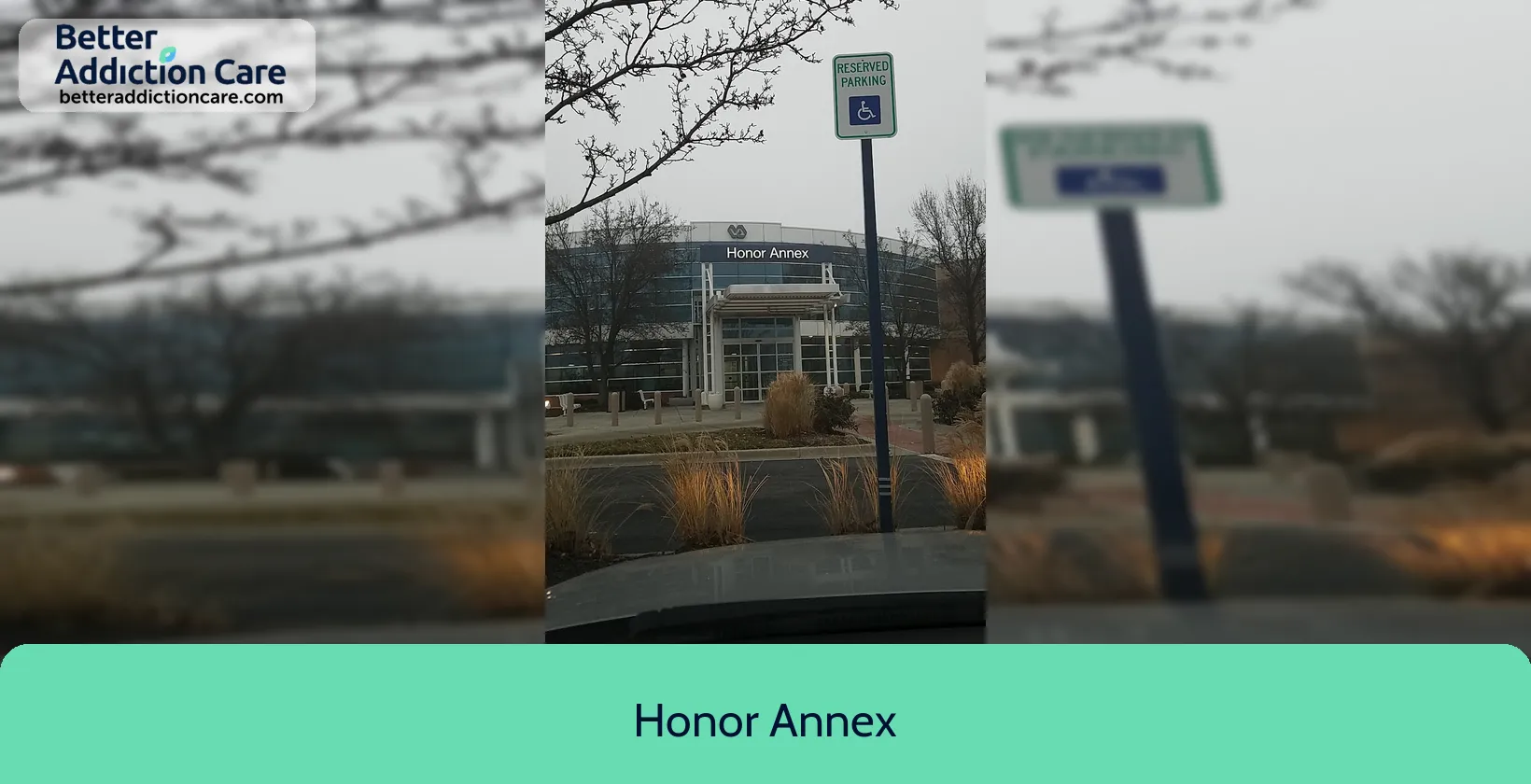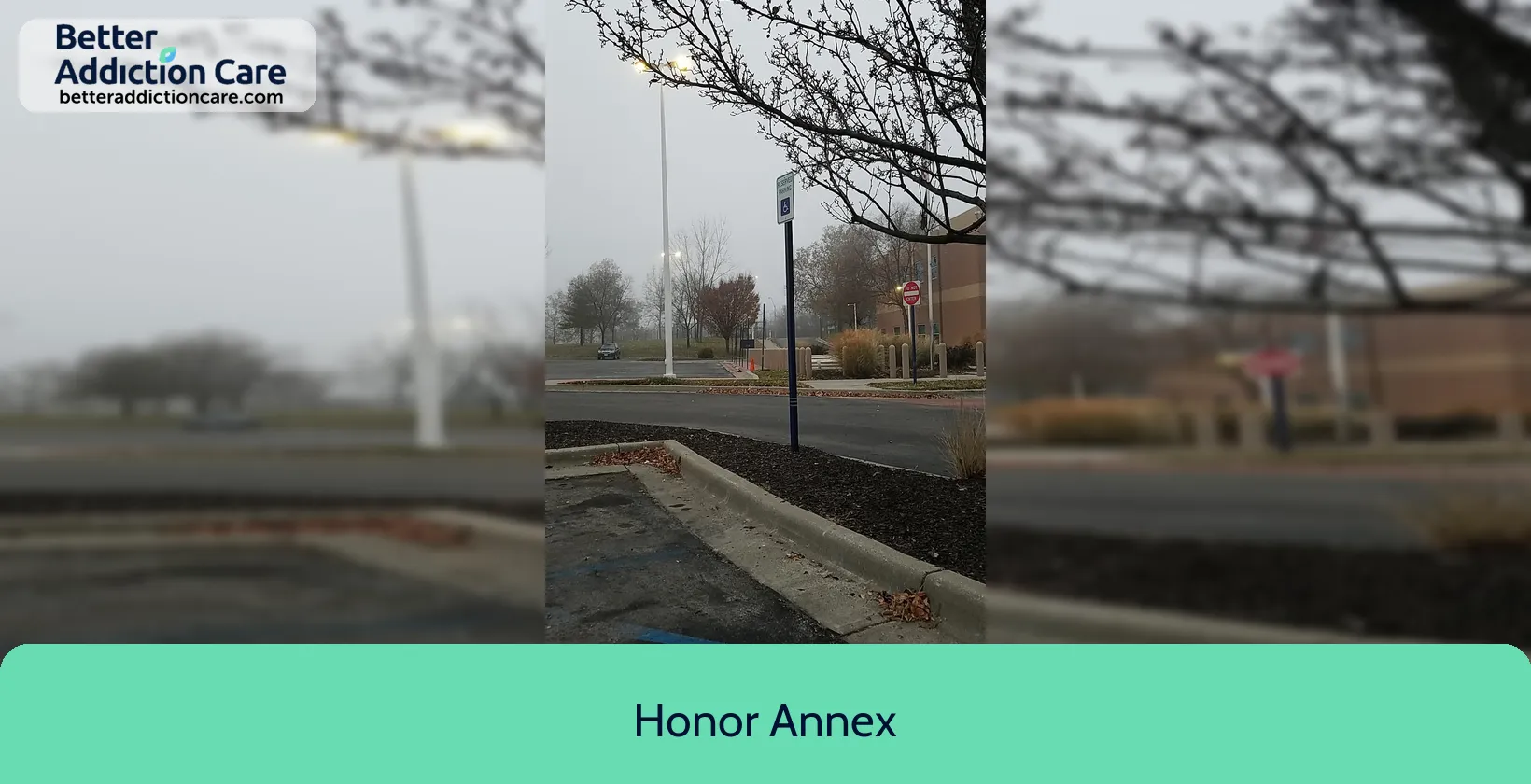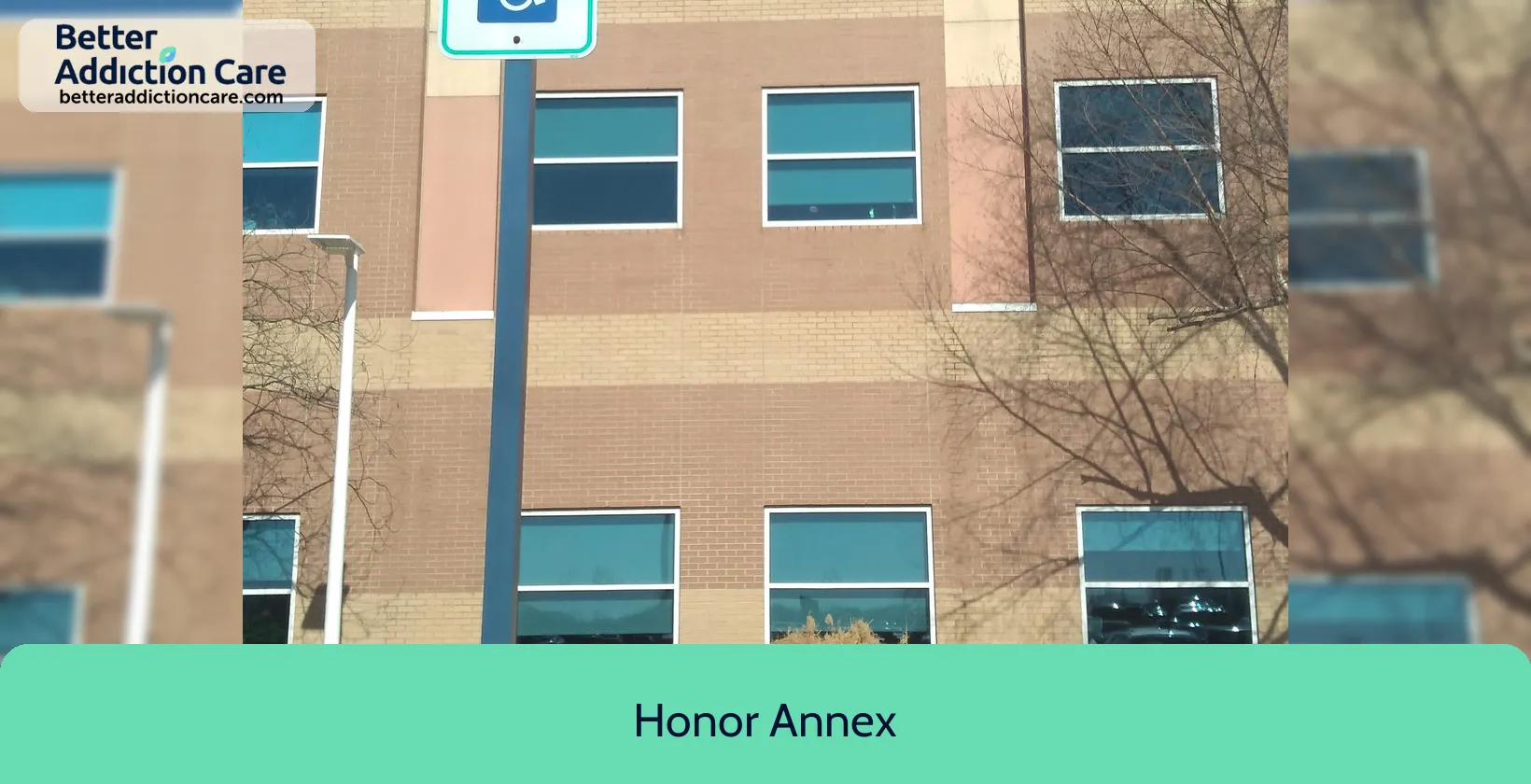Honor Annex
Overview
Honor Annex is a substance abuse treatment center for people seeking treatment near Jackson County. As part of their treatment modalities for recovery, Honor Annex provides 12-step facilitation, individual psychotherapy, and group counseling during treatment. Honor Annex is located in Kansas City, Missouri, accepting cash or self-payment for treatment.
Honor Annex at a Glance
Payment Options
- Cash or self-payment
- State-financed health insurance plan other than Medicaid
- Federal military insurance (e.g., TRICARE)
- Private health insurance
- Per session
Assessments
- Comprehensive mental health assessment
- Comprehensive substance use assessment
- Screening for tobacco use
- Interim services for clients
- Outreach to persons in the community
Age Groups
- Young adults
- Adults
- Seniors
Ancillary Services
- Intensive case management
- Chronic disease/illness management
- Diet and exercise counseling
- Family psychoeducation
- Illness management and recovery
Highlights About Honor Annex
8.39/10
With an overall rating of 8.39/10, this facility has following balanced range of services. Alcohol Rehabilitation: 8.90/10, Drug Rehab and Detox: 8.46/10, Insurance and Payments: 6.67/10, Treatment Options: 9.52/10.-
Treatment Options 9.52
-
Alcohol Rehabilitation 8.90
-
Drug Rehab and Detox 8.46
-
Insurance and Payments 6.67
Accreditations
The Joint Commission:

The Joint Commission accreditation for addiction and behavioral health is a prestigious recognition signifying a facility's commitment to delivering high-quality care and safety for individuals dealing with substance abuse and mental health issues. It involves rigorous evaluations and assessments, ensuring patients receive evidence-based treatment and exceptional care. This accreditation demonstrates a facility's dedication to continuous improvement and ethical practices, building trust among patients and healthcare professionals seeking top-tier addiction and behavioral health services.
Commission on Accreditation of Rehabilitation Facilities (CARF):

CARF accreditation is a prestigious recognition for rehabilitation and human service organizations. It signifies that an organization meets high-quality standards and is committed to providing top-level care. CARF conducts rigorous evaluations to ensure compliance, enhancing an organization's credibility and reassuring clients and funders of exceptional service quality. This accreditation promotes excellence and continual improvement in the rehabilitation and human services field.
SAMHSA certification for opioid treatment program (OTP):
SAMHSA's Opioid Treatment Programs (OTP) accreditation is a prestigious recognition that signifies a program's compliance with stringent standards and guidelines established by the Substance Abuse and Mental Health Services Administration (SAMHSA). This accreditation demonstrates an OTP's commitment to providing high-quality, evidence-based care for individuals struggling with opioid use disorder (OUD). It serves as a trusted symbol of accountability and excellence, assuring patients, families, and communities that the OTP offers safe, effective, and comprehensive treatment options for OUD.
Treatment At Honor Annex
Treatment Conditions
- Mental health treatment
- Alcoholism
- Opioid Addiction
- Substance use treatment
- Co-occurring Disorders
Care Levels
- Intensive outpatient treatment
- Detoxification
- Aftercare
- Halfway house
- Outpatient
Treatment Modalities
- 12-step facilitation
- Individual psychotherapy
- Group counseling
- Family counseling
- Marital/couples counseling
Ancillary Services
Languages
- Sign language services for the deaf and hard of hearing
Additional Services
- Pharmacotherapies administered during treatment
- Mentoring/peer support
- Breathalyzer or blood alcohol testing
Special Programs
- Clients with HIV or AIDS
- Active duty military
- Clients who have experienced trauma
- Persons with post-traumatic stress disorder (PTSD)
- Veterans
Get Help Now
Common Questions About Honor Annex
Contact Information
Other Facilities in Kansas City

6.83

6.56

7.05

6.65

6.71

6.71

6.80

6.65
DISCLAIMER: The facility name, logo and brand are the property and registered trademarks of Truman Medical Centers - TMC Behavioral Health, and are being used for identification and informational purposes only. Use of these names, logos and brands shall not imply endorsement. BetterAddictionCare.com is not affiliated with or sponsored by Truman Medical Centers - TMC Behavioral Health.




